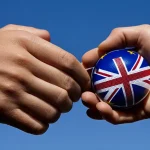The Role of Sports in Shaping UK National Identity
Sports have a profound cultural impact in the UK, playing a key role in shaping the country’s national identity. The passion for sports such as football, rugby, and cricket is deeply woven into the social fabric, facilitating a strong collective sense of belonging across diverse communities. This UK sports influence is not just about competition; it acts as a unifying force that reflects shared values, history, and pride.
One of the distinct aspects in the UK is how sports serve as common ground, bridging regional differences and creating a collective identity that transcends local loyalties. The rituals surrounding major events—whether it’s cheering for a national team or celebrating local club victories—enhance social cohesion and reinforce a shared narrative about what it means to be British.
In the same genre : What role do fans play in shaping UK sports culture?
Several factors amplify this influence. Media coverage deeply embeds significant sports moments into the national consciousness, while grassroots participation fosters personal and communal connections to national identity early on. The international success of UK athletes and teams also sparks national pride, elevating the country’s image globally and reinforcing internal self-perception. This dynamic interplay between sports and identity underscores why national identity in the UK is so often expressed through sporting achievements and traditions.
Historical Foundations of Sports and National Identity in the UK
The historical development of key British sports such as football, rugby, and cricket has deeply influenced the formation of the country’s national identity. Football, originating in England during the 19th century, quickly transcended regional boundaries, becoming a unifying force that connected different communities through shared passion and rivalry. Rugby, meanwhile, found its roots in English public schools, emphasizing values such as teamwork and discipline. Cricket’s longer history, dating back to the 16th century, symbolizes tradition and continuity, embodying the rural and pastoral aspects beloved in British culture.
Also read : How do UK sports organizations address diversity and inclusion?
These major sporting traditions became intertwined with British sports history by serving as common cultural touchstones during periods of social and political change. Sporting events provided opportunities for public gatherings where expressions of national pride were openly displayed. For example, matches between England, Scotland, Wales, and Ireland cultivated a sense of distinct identities within the United Kingdom while reinforcing a broader Britishness when competing internationally.
Early influences on public attitudes show a clear connection between sports and national symbolism. Emblems, team colors, and anthems sported during matches became potent symbols of loyalty to region and nation. The ritualistic nature of match days—from pre-game chants to post-match celebrations—helped embed sports into the social fabric, contributing to the collective British identity. Over time, these traditions not only shaped how people viewed sports but also how they perceived their place within Britain itself, making sports a pivotal element of national culture and heritage.
Regional Sports and Their Influence on Identity
Sports like England football, Welsh rugby, and other regional games are deeply woven into the fabric of local identities across the United Kingdom. These sports do more than entertain—they embody community values, history, and pride. For example, England football has long served as a symbol of national unity and competition, especially during international tournaments where the team’s performance resonates beyond the pitch into cultural expression.
In Wales, rugby is not just a game but an integral part of Welsh rugby heritage. The team’s passionate displays in events like the Six Nations Championship ignite intense regional pride. These moments reinforce a collective story, helping to affirm the distinctiveness of Welsh culture and its historical resilience. Similarly, Scottish identity is strongly linked with traditional sports such as football and rugby, as well as unique local customs that celebrate heritage and community solidarity.
Iconic rivalries also play a significant role in fostering regional pride. Matches between England and Scotland, or Wales and England, spark fervent support and friendly, yet intense competition that goes back decades. These sports clashes become modern-day rituals, reflecting historical tensions and camaraderie alike.
Local traditions and sporting heroes become powerful symbols of identity, with players often revered as embodiments of community spirit. Whether it’s a legendary Welsh rugby captain or a Scottish football star, these figures inspire pride and unity, becoming part of the narrative that defines each region’s unique place within the UK sporting landscape.
Major Sporting Events as Expressions of National Unity
Major sporting events like the Olympics, the World Cup, and home internationals serve as powerful platforms for national pride and unity within the UK. These events bring together diverse communities through shared passion and collective experience, reinforcing a sense of belonging that transcends everyday divisions.
During the Olympics, UK sporting events become a nationwide phenomenon, where every medal won is celebrated as a triumph for the entire country. This atmosphere of excitement promotes an intense feeling of togetherness. Similarly, the World Cup captivates millions, as fans rally behind their teams in anticipation and celebration, turning individual matches into moments of national significance.
Home internationals, such as in rugby or football, provide recurring opportunities for the nation to unite. Victories are not only about athletic performance but also about reinforcing identity. Public celebrations and extensive media coverage amplify this effect by creating shared narratives and memories that endure beyond the event itself.
These sports celebrations act as cultural touchstones, reminding the public of collective achievements and providing moments where national pride is openly and joyously expressed. Whether through communal viewing events or spontaneous street celebrations, these occasions strengthen the social fabric, encouraging a unified UK spirit rooted in the thrill and drama of sport.
Cultural Symbolism and the Meaning of Sports in the UK
Sports in the UK go far beyond mere entertainment; they act as powerful cultural symbols deeply woven into the fabric of British society. These activities often mirror core British values such as fair play, resilience, and community spirit. For instance, the ethos found in traditional sports like cricket and rugby, emphasizing teamwork and respect, reflects ideals cherished throughout the UK.
Sport frequently features in national ceremonies and celebrations, reinforcing its significance as a unifying force. Events like the London Marathon or the FA Cup final serve not only as competitive fixtures but also as public rituals that bring diverse communities together. These occasions highlight the role of sports in the collective national identity, demonstrating how shared experiences around athletic events foster belonging.
In British literature and arts, sports are often employed as metaphors for broader societal themes. Iconography derived from sports—such as the lion in football club crests or the language of “scoring” and “winning” used in everyday discourse—has permeated the cultural landscape. Shared rituals, including pre-match pubs and chants, create a sense of continuity and collective memory, further embedding sports into national consciousness.
By acting as both a mirror and maker of British cultural values, sports in the UK stand as enduring national symbols that resonate across social and geographic boundaries.
Contemporary Perspectives and Expert Analysis
Recent social impact studies highlight that sports remain a significant pillar in shaping the modern UK identity, though the influence has evolved considerably over time. Experts observe that traditional sports like football still anchor national pride, yet there is growing recognition of how diverse communities contribute to a richer and more inclusive sporting culture in the UK.
Leading sociologists emphasize that shifts in demographics and globalization have expanded the definition of what constitutes British sporting identity. This evolution mirrors changes in society, where multiculturalism and varied sporting interests intersect. Experts agree that understanding the relationship between sports and national identity is crucial to grasping broader social dynamics in contemporary Britain.
Moreover, recent analyses indicate that sporting influence today extends beyond the pitch or stadium. Media representation, community engagement, and youth development programs collectively reinforce how sports forge connections among diverse populations. Such findings show that the modern UK identity, rooted in sports, is increasingly complex and dynamic, reflecting societal transformations and expert consensus on its ongoing significance.




